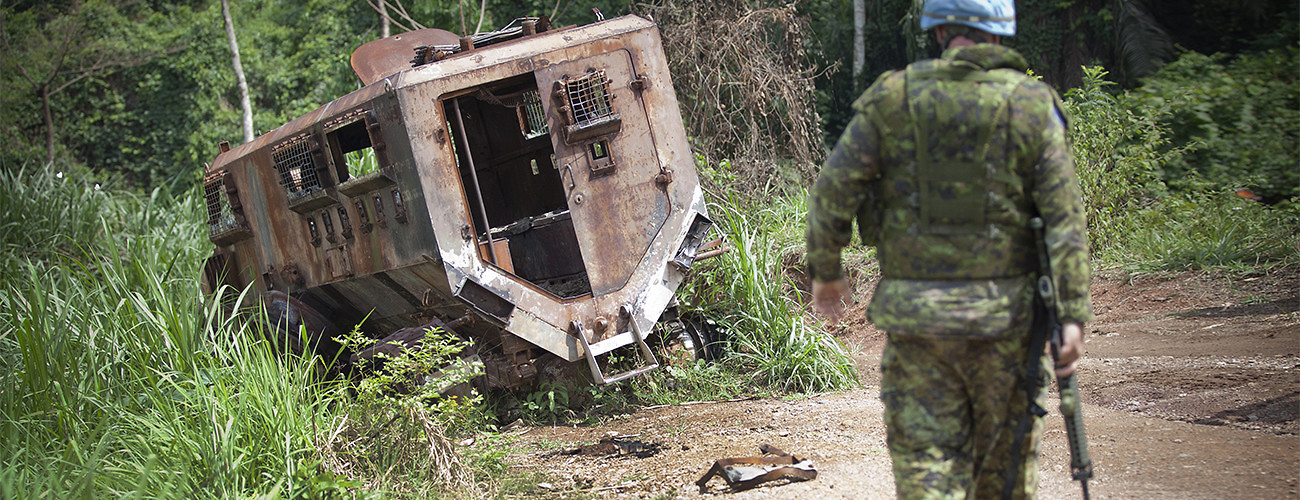A MONUSCO peacekeeper walks towards the wreckage of a UN vehicle that was hit the previous year in an ambush by the Allied Democratic Forces rebel militia near Beni, Democratic Republic of the Congo on March 13, 2014. (UN Photo/Sylvain Leichti)
Since the tragic bombing of the UN headquarters in Iraq in 2003, a concerted effort has been made to improve and strengthen security arrangements across the UN system. However, too often, security issues are perceived as primarily technical matters that are not prioritized as strategically and politically important.
This report takes stock of the strategic impact of safety and security for effective peace operations by outlining the evolving, increasingly hostile security context into which operations are being deployed and its implications for personnel.
The authors assess existing UN management structures, policies, and processes to identify potential areas of reform. As they examine the diverse range of challenges and considerations for improving security of UN peace operations, they argue that effective security is about protecting UN personnel while enabling, not limiting, operational activity.
The authors offer the following recommendations for UN member states and the Secretariat to improve safety and security in UN peace operations:
- Extend responsibility collectively across the UN for a shared understanding of the security situation and improvements in the mandating, resourcing, planning, and execution of peace operations.
- Approach safety and security issues holistically, and consolidate them under the UN Department of Safety and Security.
- Apply a comprehensive policy on crisis management across all peace operations and country teams accompanied by a mandatory regime of crisis-management simulation exercises.
- Revise the assumptions on which the UN Security Management System is based, and tailor security models to mission mandates and the prevailing security environment.
- Clarify how UN peace operations should function in asymmetric threat environments when they lack capabilities, such as adequate medical support or evacuation.
- Recruit and train security personnel to high professional standards across all missions and ensure that they hold sufficient seniority at UN headquarters and in missions.
- Establish political and financial incentives to address the gap between peace operations’ mandates and allocated resources.
- Develop a professional intelligence system to enhance situational awareness for better mandate implementation.
- Clarify the legal protections for the UN under international law, and ensure a shared understanding of security responsibilities between the UN and the host state.








